Learning exists outside the classroom.
It’s often assumed that a person’s pursuit of learning ends when they reach the end of a traditional academic track. However, in the past fifty years we’ve seen a dramatic shift in the way learning is understood. It is now seen as existing beyond a static place (the classroom) and time (childhood), rather occurring throughout a person’s life and experiences. This is lifelong learning.
Malcom Knowles, an adult educator best known for his work on the theory of andragogy, imagined a world based around the concept of lifelong learning. In his essay, Lifelong Learning: A Dream, he envisioned a community “in which continuing learning throughout life is a basic organizing principle for the whole enterprise … a community in which every individual, every organization, and every institution was perceived as a resource for learning.” Nearly 25 years later, we’re beginning to see Knowles’ dream become reality. Learning opportunities exists all around us if we look hard enough: in print or online, formally or informally, self-directed or guided. It can be as easy as opening a book, picking up a new hobby, or sharing a skill with a co-worker.
As adult learners, it’s up to us to seize these opportunities and commit to pursuing intellectual development beyond the brick and mortar classroom. The benefits are numerous.
It’s good for your career.
Learning makes economic sense. Jobs that require static knowledge are more often becoming the work of machines, not people. We don’t always stay in the same job throughout the course of our lives. That means we need to constantly develop new skills and knowledge to help us do our jobs and do them well. Even if you do stay in the same job over a longer period of time, it’s likely that you’ll see that role grow and change. In order to thrive in our careers, we need to keep learning.
It’s good for your personal growth.
Learning sparks social engagement. This has been the case long before the rise of social media. Now more than ever, we are engaging with our peers all over the world to help foster our skills. This leads to new friendships and active community involvement.
It’s good for your health.
Studies have shown that reading for just six minutes can reduce stress levels by up to 68 per cent. Learning might even help delay or prevent cognitive failures in old age. A study conducted by the Rush Memory and Aging Project revealed that cognitively active elders were 2.6 times less likely to develop dementia and Alzheimer’s disease than those who were considered cognitively inactive.
CHA Learning believes in lifelong learning.
At CHA Learning, we want to help you commit to lifelong learning. We offer over eight programs and courses surrounding Canadian healthcare in order to advance your knowledge and skills at any point in your career. Our students gain knowledge and skills within an online, collaborative, flexible learning environment on topics including:
- Management & Leadership
- Health Information
- Food & Nutrition
- Quality & Safety
- Long-Term Care
- Governance
- Health Research
Tell us…
How have you committed to lifelong learning lately? Have you recently enrolled in one of our programs? Did you learn something from a friend? Send us an email, connect with us on Facebook, or tell us about it on twitter @CHA_Learning.
Shneay Kazan, Learning Specialist, CHA Learning
Shneay Kazan is an instructional designer with over six years’ experience, passionate about helping adult learners reach their goals in professional development. CHA Learning will be sharing a monthly post on the various aspects of eLearning – the when, the where, the why and the how. Shneay will be offering tips and advice for those venturing into eLearning for the first time as well as those who have experience in eLearning.
Sources
- 5 Key Benefits of Lifelong Learning. (2017, June 25). Retrieved August 04, 2017, from https://www.missiontolearn.com/benefits-of-lifelong-learning/
- Bennett, D. A., Schneider, J. A., Buchman, A. S., Barnes, L. L., Boyle, P. A., & Wilson, R. S. (2012). Overview and Findings from the Rush Memory and Aging Project. Current Alzheimer Research, 9(6), 646-663. doi:10.2174/156720512801322663
- Knowles, M. S. (1993). Self-Directed Learning: A Guide for Learners and Teachers. Charlwood: Granary Press.
- Fischer, Gerhard (2000). “Lifelong Learning – More than Training” in Journal of Interactive Learning Research, Volume 11 issue 3/4 pp 265–294.
- Merz Nordstrom, N. (2013, December 30). Top 10 Benefits Of Lifelong Learning. Retrieved July 14, 2017, from http://javierarmaolea.com/top-10-benefits-of-lifelong-learning/
- Reading ‘can help reduce stress’. (2009, March 30). Retrieved August 04, 2017, from http://www.telegraph.co.uk/news/health/news/5070874/Reading-can-help-reduce-stress.html





